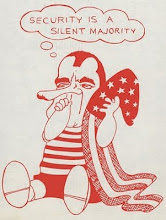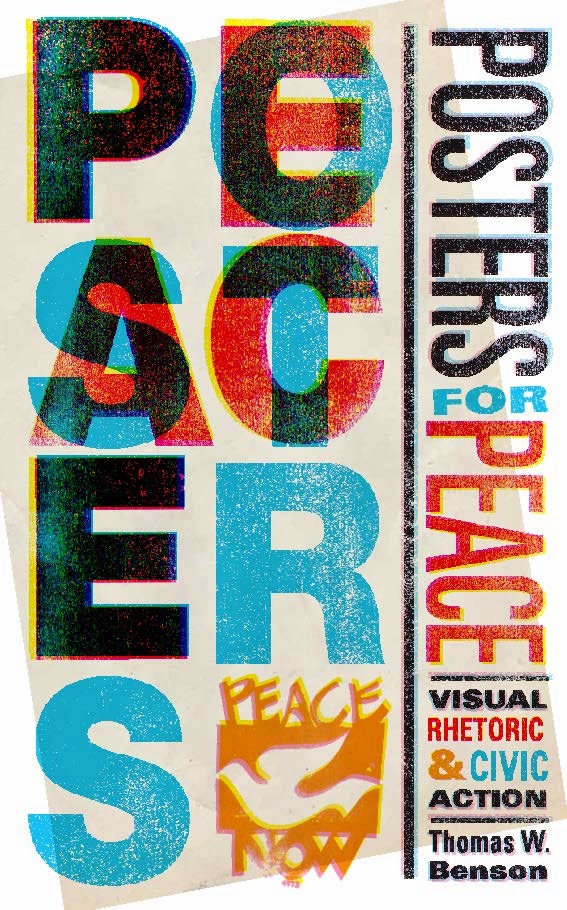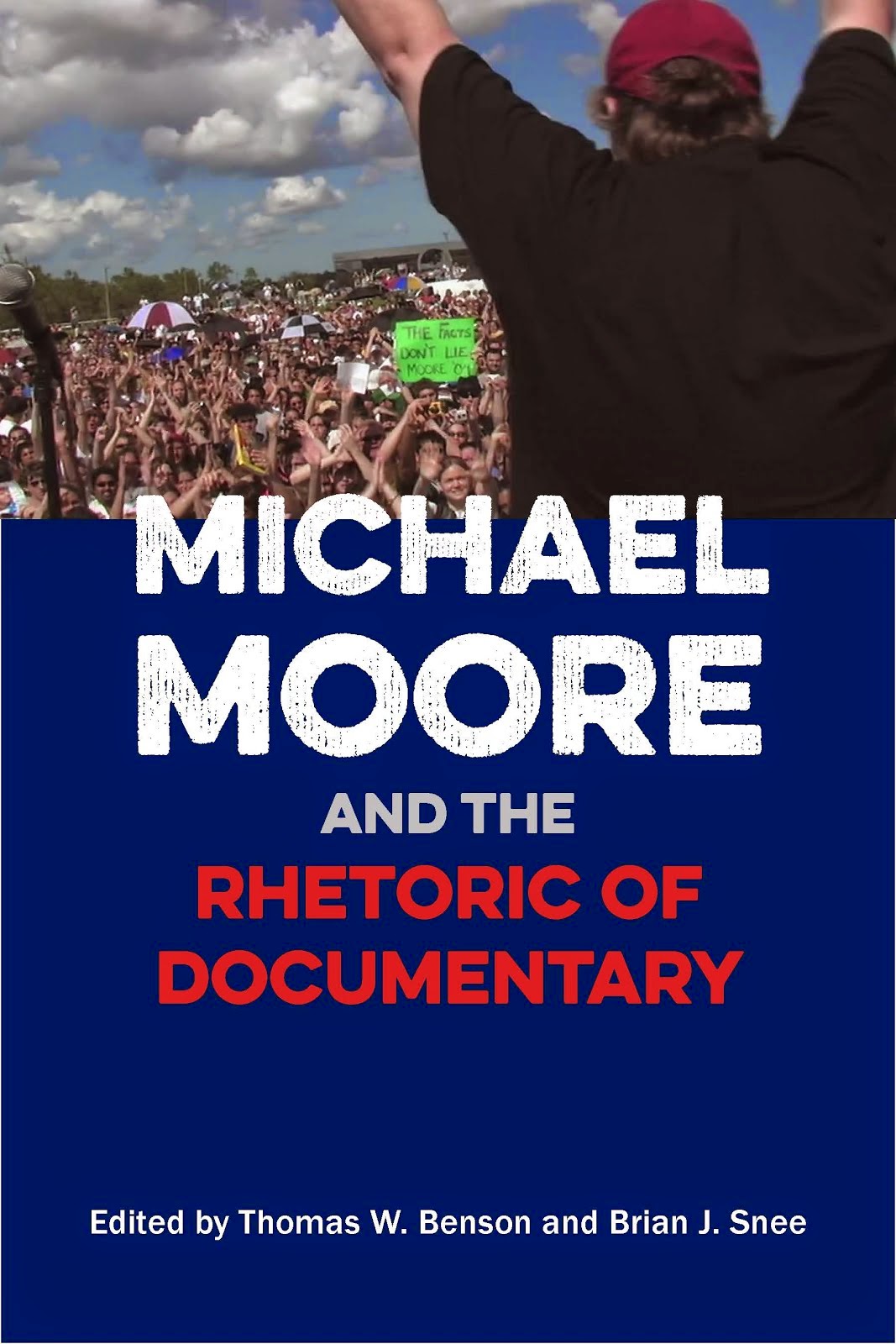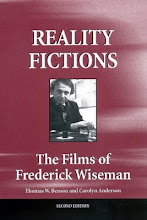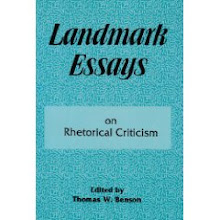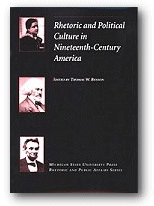A research program about leisure and the politics of place awaits development, but should focus on language and discourse, and should begin with the question: how are leisure places socially constructed with political consequences?Stokowski, Patricia A. "Languages of Place and Discourses of Power: Constructing New Senses of Place." Journal of Leisure Research 34, no. 4 (2002): 368.
Sunday, February 28, 2010
Rhetoric and a Sense of Place
Friday, February 26, 2010
Decoding Limbaugh
. . . Limbaugh described Obama’s health-care reform as “a civil-rights bill” (dittospeak for “a black people’s bill”) and “reparations.”It is a continuing scandal that this vicious demagogue is kowtowed to by Republican politicians and enabled by nominally respectable media corporations and advertisers.
Hendrik Hertzberg in the New Yorker.
Monday, February 22, 2010
New Media Campaigning

John Allen Hendricks and Robert E. Denton, Jr., eds., Communicator-in-Chief: How Barack Obama Used New Media Technology to Win the White House (Lanham, MD: Lexington Books, 2010).
Contributors:
Jody C. Baumgartner; Robert E. Denton, Jr.; John Allen Hendricks; Jenn Burleson Mackay; Jonathan S. Morris; Eric E. Otenyo; Larry Powell; Melissa M. Smith; Nancy Snow; Frederic I. Solop; Brandon C. Waite.
Washington's Birthday

 Today is the birthday of George Washington -- February 22, 1732 - December 14, 1799.
Today is the birthday of George Washington -- February 22, 1732 - December 14, 1799.images:
Washington portrait by Stuart and Peale, from copy at Sterling and Francine Clark Art Institute, Williamstown, MA.
Emanuel Leutze, Washington Crossing the Delaware (1851), Museum of Modern Art --
from Wikipedia Commons
Saturday, February 20, 2010
Broken Windows
Gail Collins, "The Wages of Rages," New York Times, 20 February 2010.Politicians often get into trouble when they’re trying to sound more furious than they feel. And [Minnesota Governor Tim] Pawlenty told the conservatives they should try to be more like ... Tiger Woods’s wife.
“We should take a page out of her playbook and take a 9-iron and smash the window out of big government in this country,” he urged.
The overall strangeness of this thought aside, consider the timing. An angry man had just smashed his airplane into an I.R.S. office in Austin, Tex., killing one federal employee, injuring others and breaking quite a few windows. Does this seem like the very best time to be encouraging people to assault government property? Pawlenty’s defenders will undoubtedly say that he did not want his listeners to literally grab a golf club and hit something. But it is my experience that many Americans do not totally understand the concept of a metaphor. . . .
See also ThinkProgress
Say It Ain't So, Dick
 In 1969, President Richard Nixon attended the Texas-Arkansas football game and, on his own initiative, awarded the national championship to the winner, Texas. But Penn State also had an unbeaten team that year and has always felt that it was unfairly denied the championship.
In 1969, President Richard Nixon attended the Texas-Arkansas football game and, on his own initiative, awarded the national championship to the winner, Texas. But Penn State also had an unbeaten team that year and has always felt that it was unfairly denied the championship.Maureen Minielli sent me a photo (from her iPhone!) of this document from the Nixon archives -- apparently a suggestion from William Safire, a Nixon speechwriter, for how Nixon might answer a question about the award, and Penn State's likely reaction, at an upcoming press conference.
Some time later, Nixon offered a sort of consolation award to Penn State. Joe Paterno, Penn State coach then and now, replied, according to a story in the Pittsburgh Post Gazette, "You tell the president to take that trophy and shove it."
In a Penn State commencement speech in 1973, Paterno said: "I'd like to know," Paterno asked the graduates, "how could the president know so little about Watergate in 1973 and so much about college football in 1969?"
Shelly Anderson, "Research Shows Nixon Hurt '69 Lions," Pittsburgh Post-Gazette, 17 November 2006. Read more: http://www.post-gazette.com/pg/06321/739083-198.stm#ixzz0g58snQVI
Thanks to Maureen Minielli for the document from the Nixon archives and the link to the story in the Post-Gazette.
Friday, February 19, 2010
Jim Crow Trailer

"For the Sunny South. An Airship with a Jim Crow Trailer" Library of Congress. Original from Puck, 1913.
California Insurance Rates
Health insurance premiums are surging — and conservatives fear that the spectacle will reinvigorate the push for reform. On the Fox Business Network, a host chided a vice president of WellPoint, which has told California customers to expect huge rate increases: “You handed the politicians red meat at a time when health care is being discussed. You gave it to them!” . . .
Paul Krugman, "California Death Spiral," New York Times, 19 February 2010.
Social Security Tattoo

photo: Dorothea Lange. "Unemployed lumber worker goes with his wife to the bean harvest. Note social security number tattooed on his arm. Oregon." August 1939. From the FSA-OWI Collection, Library of Congress.
Thursday, February 18, 2010
It Has Snowed Before
 photo: Arthur Rothstein, "Automobiles in Snow Drifts, Chillicothe, Ohio, February 1940," FSA-OWI collection, Library of Congress.
photo: Arthur Rothstein, "Automobiles in Snow Drifts, Chillicothe, Ohio, February 1940," FSA-OWI collection, Library of Congress.
Tuesday, February 16, 2010
Rhetoric of Science & Technology - RSA preconference 2010
Date: Mon, 15 Feb 2010 13:49:38 -0500
From: "William J. White"
Deadline Extended to
March 15, 2010: Rhetoric of Science & Technology RSA Preconference 2010
The Association for the Rhetoric of Science & Technology (ARST) is excited to hold a preconference in conjunction with the 2010 Rhetoric Society of America (RSA) meetings in Minneapolis. We'll be holding several ARST sessions the morning of May 28. The ARST preconference theme is:
"That Buck Rogers Stuff: The Rhetoric of Science and Science Fiction"
What happens in the space between science and science fiction? In its guise as the "literature of ideas," science fiction has inspired the careers of scientists, foreshadowed the arrival of new scientific developments, and illuminated the fact/value distinction. In that respect, science fiction is itself a "rhetoric of science"; that is to say, a reflexive discourse of science. Seen from a different angle, however, "sci-fi" is a synonym for pseudo-science and the misrepresentation of scientists. This is of particular concern in an era when "science" has become a highly politicized and hotly contested theme in public discourse. To what extent and with what effect does science fiction contribute to our notions of science and its place in the public sphere?
The organizers of the ARST preconference at RSA thus seek presentations that explore questions about how the rhetorics of science and science fiction are employed to unify or divide, to express concordance or difference, and to imagine the possibilities and dangers of science and technology.
Submit extended abstracts or presentation proposals (no longer than 5 pages, including notes and references) as Word or PDF attachments by March 15, 2010, to
Bill White,
ARST Secretary, at wjw11@psu.edu.
www.arstonline.org
William J. White, Ph.D. (wjw11@psu.edu)
Associate Professor, Communication Arts & Sciences
Penn State Altoona
(814) 949-5689
Italian Internet Regulations

Sylvia Poggioli, "Italy's Government Eyes New Internet Regulations," NPR, 16 February 2010.
A plan by the Italian government to impose strict regulation on the Internet in Italy has caused a political uproar. The proposal, which the government would impose by decree, would give the state control over online video content and force anyone who regularly uploads videos to obtain a license from the Ministry of Communications..
Sunday, February 14, 2010
Republican Faux Populism?

Frank Rich in the New York Times:
That Republican leaders can pass off deceptive faux-populism as “pitch-perfect populism” is in part a testament to the blinding intensity of the economic anger and anxiety roiling the country. It also shows the power of an incessant bumper-sticker fiction to take root when ineffectually challenged — and, most crucially, the inability of Democrats to make a persuasive case that they offer anything better.
Frank Rich, "Palin's Cunning Sleight of Hand," New York Times, 14 February 2010.
On the rhetorical difficulties of contemporary populism, see also James Surowiecki, "The Populism Problem," The New Yorker, 15 February 2010.
Photograph: Ed Reinke/AP
Saturday, February 13, 2010
Mr. Lincoln's Virtual Library
 Abraham Lincoln, from the Library of Congress website, Mr. Lincoln's Virtual Library.
Abraham Lincoln, from the Library of Congress website, Mr. Lincoln's Virtual Library.
Thursday, February 11, 2010
Tuesday, February 9, 2010
Rhetoric, Politics, and the Obama Phenomenon
The registration deadline for the Rhetoric, Politics, and Obama Phenomenon conference at Texas A&M University is February 22, 2010. Registration information can be found here:
http://comm.tamu.edu/
The conference will draw together scholars of Communication, Political Science, History, English, Women's Studies, Africana Studies, and others. The program can be found on the conference website:
http://comm.tamu.edu/
"Rhetoric, Politics, and the Obama Phenomenon," Texas A&M University, March 4-7, 2010.
Barack Obama's meteoric rise from a little known Illinois state Senator in 2004 to President of the United States in 2008 was made possible in large part by his exceptional media strategies and rhetorical performances.
President Obama's image, words, and family have all become a part of the world-wide phenomenon that is Barack Obama. This conference will bring together rhetoric, media, and political science scholars to explore and analyze Barack Obama's image politics, communication practices, and rhetorical strategies. Scholars will present papers on such topics as the visual politics of Obama, Obama and leadership, Obama and civil rights, Obama's rhetorical style, and other topics relevant to the Obama phenomenon.
Bonnie Dow will deliver Texas A&M's annual Kurt Ritter Lecture in Political Rhetoric during the conference on the image politics/media coverage of Michelle Obama. One goal of the conference is to draw together both established and junior scholars (including graduate students) who are
interested in the Obama phenomenon. Therefore, the conference will feature both plenary speakers and contributed paper presentations. A second goal of the conference is to draw together a group of interdisciplinary scholars who are interested in the Obama phenomenon. Plenary and contributed papers and responses will be competitively selected to appear in a planned edited conference volume.
Please contact Jennifer Mercieca at mercieca@tamu.edu if you have any questions.
Dr. Jennifer R. Mercieca
Associate Professor
Department of Communication
Texas A&M University
4234 TAMU
College Station, TX 77843
mercieca@tamu.edu
Homepage: http://comm.tamu.edu/people/
Obamenon Conference: http://comm.tamu.edu/
Founding Fictions: http://amzn.com/0817316906
Monday, February 8, 2010
A Nation of Speechifiers

Carolyn Eastman, A Nation of Speechifiers: Making an American Public after the Revolution (Chicago: University of Chicago Press, 2009).
from the press:
In the decades after the American Revolution, inhabitants of the United States began to shape a new national identity. Telling the story of this messy yet formative process, Carolyn Eastman argues that ordinary men and women gave meaning to American nationhood and national belonging by first learning to imagine themselves as members of a shared public.
She reveals that the creation of this American public—which only gradually developed nationalistic qualities—took place as men and women engaged with oratory and print media not only as readers and listeners but also as writers and speakers. Eastman paints vibrant portraits of the arenas where this engagement played out, from the schools that instructed children in elocution to the debating societies, newspapers, and presses through which different groups jostled to define themselves—sometimes against each other. Demonstrating the previously unrecognized extent to which nonelites participated in the formation of our ideas about politics, manners, and gender and race relations, A Nation of Speechifiers provides an unparalleled genealogy of early American identity.
.
Michael Leff

Mike Leff, a dear friend, passed away on Friday, February 5, 2010.
Here is an obituary posted on h-rhetor:
From: "Richard Clarke"
Date: Mon, 8 Feb 2010 10:15:21 -0400
Please see the obituary written by Michael Osborn and circulated on ARGTHRY for Michael C. Leff below:
Michael Leff, chair of the Department of Communication at the University of Memphis, died Friday morning, February 5, after a brief illness. Mike was internationally known as a scholar of rhetoric, having returned only recently from China where he was working to set up a student exchange program. Among his many honors, he had been designated by the National Communication Association as a Distinguished Scholar. At his death he was president of the Rhetoric Society of America, and had been busy planning the Society's May convention in Minneapolis up until the day before his death.
Mike was the intellectual leader of a school of criticism that emphasizes close textual analysis of speeches and other rhetorical documents. For his many publications, he had been awarded the NCA's Wichelns-Winans award, the Woolbert award for influential scholarship, and the Ehninger award for a sustained program of research. He had also received the award for Distinguished Scholarship from the International Society for the Study of Argumentation. He served as editor of Rhetorica, the journal of the International Society for the History of Rhetoric, and as the founding president of the American Society for the History of Rhetoric.
While he took pleasure in the many awards he had received, Mike took most joy in watching his graduate students succeed in establishing scholarly careers of their own. He was a demanding but convivial teacher who inspired students and colleagues by his encouragement of their initiatives and by his dedication to the study of rhetoric in society. As Chaucer might have noted of him, "Gladly would he learn, and gladly teach."
Before coming to the University of Memphis, Mike had taught at the University of California at Davis, the University of Indiana, the University of Wisconsin, and at Northwestern University, where he had served as chair of the Department of Communication Studies. While in Chicago, he took special pride in teaching in the Odyssey program, designed to bring high quality liberal arts education to low income people.
As a local leader here, Mike helped bring the Ph. D. program at the University of Memphis to both respectability and leadership. He developed a vision for the Department which emphasized enhancement of its outstanding program in film production, support of a program in health communication, and the encouragement of a center for the study of African American speaking of the Civil Rights era. He served on the Board of Directors for the Memphis Urban Debate League, a cause in which he passionately believed, and for FirstWorks, Inc. a Memphis-based non-profit organization that serves children who reside in some of the poorest zip codes of the city. These children have great potential for success but they have been declared at-risk by the school and juvenile court systems due to homelessness, neglect, and/or abandonment. Their cause became Leff's cause. He also served on the Board of Directors for Humanities Tennessee, the state affiliate of the National Endowment for the Humanities.
As a friend, Mike was simply a joyful and radiant person. He was an ideal dinner and wine-tasting companion, who entertained with a wealth of hilarious stories. In recent years he had become a dedicated fan of the Grizzlies, the NBA team in Memphis.
A celebration of his life and career is being planned for the RSA convention in Minneapolis. The celebration will feature his scholarship and his teaching, but what drove both were his humanity, his humor, and his kindness. Those who wish to honor his memory are encouraged to send contributions in lieu of flowers to the Church Health Center, 1210 Peabody Ave., Memphis, TN 38104-4506. While we grieve his death, we will forever be grateful for his life.
Communication Department, University of Memphis
Friday, February 5, 2010
Gasland

Gasland, a film by Josh Fox about the consequences of natural gas drilling on the water supply in New York and Pennsylvania, has won a special jury prize at the Sundance Film Festival.
Thanks to Diane Hope for the tip.
Student Loan Reform
Four months ago, it appeared all but certain that the White House and Democrats in Congress would succeed in overhauling the student loan business and ending government subsidies to private lenders. . . .
But an aggressive lobbying campaign by the nation’s biggest student lenders has now put one of the White House’s signature plans in peril, with lenders using sit-downs with lawmakers, town-hall-style meetings and petition drives to plead their case and stay in business.
Eric Lichtblau, "Lobbying Imperils Overhaul of Student Loans," New York Times, 5 February 2010.
Thursday, February 4, 2010
On-line bullying

Shaheen Shariff and Andrew H. Churchill, eds., The Truths and Myths of Cyber-bullying (New York: Peter Lang, 2010).
Contents [from the publisher’s web site]: Colin Lankshear/Michele Knobel: Foreword (or, Beyond 'Reify, Measure and Treat') - Shaheen Shariff/Andrew H. Churchill: Appreciating Complexity: Detangling the Web of Stakeholder Influence and Responsibility - Michel Walrave/Wannes Heirman: Towards Understanding the Potential Triggering Features of Technology - Dianne L. Hoff/Sidney N. Mitchell: Gender and Cyber-bullying: How Do We Know What We Know? - Ellen M. Kraft: Juicycampus.com: How Was This Business Model Culpable of Encouraging Harassment on College Campuses? - Dawn Zinga: Boundaries in Cyber-space: Media and Stakeholders as Policy Shapers - Jacqueline A. Stefkovich/Emily R. Crawford/Mark P. Murphy: Legal Issues Related to Cyber-bullying - Patrick D. Pauken: Morse v. Frederick and Cyber-bullying in Schools: The Impact on Freedom of Expression, Disciplinary Authority, and School Leadership - Marc Raboy/Jeremy Shtern: Mediated Speech and Communication Rights: Situating Cyber-bullying within the Emerging Global Internet Governance Regime - Jennifer Masters/Nicola Yelland: Changing Learning Ecologies: Social Media for Cyber-citizens - Gillian Palmer/Juliana Raskauskas: Kia Kaha: Police and Schools Working Together to Eliminate Bullying, a New Zealand Intervention - Will Gardner: Cyber-bullying: A Whole-school Community Approach.
Do Anarchists Take Vacations?
The story from Inside Higher Ed is here. (thanks to Hillary Jones for this link).
The resolution, from the Senate Agenda, is here.
Now, when I went to college, on a snowy mountaintop -- Hamilton College, in Clinton, New York, where everything is uphill -- we had Saturday morning classes, and compulsory Sunday evening chapel (and we were not a religion-affiliated school). And we had a rule that if a student cut a class on the day before a vacation, he failed the course. Period. Those days are gone forever.
There is a lot of absenteeism in the days before a vacation -- and sometimes after. Penn State recently tried to repair the problem of late-Wednesday dismissal for Thanksgiving break by scheduling all of Thanksgiving week as a holiday. And then some students cut classes the Thursday and Friday before that long holiday.
Monday, February 1, 2010
Top Women
 Like girls from Mars are these "top women" at U.S. Steel's Gary, Indiana, Works. Their job is to clean up at regular intervals around the tops of twelve blast furnaces. As a safety precaution, the girls wear oxygen masks., 1940 - 1945
Like girls from Mars are these "top women" at U.S. Steel's Gary, Indiana, Works. Their job is to clean up at regular intervals around the tops of twelve blast furnaces. As a safety precaution, the girls wear oxygen masks., 1940 - 1945From the National Archives
and at Flickr
Rhetorica in Motion
Trial of the Catonsville Nine
The Trial of the Catonsville Nine will be performed at Penn State University this week.
A panel discussion on theatrical performance as social and political activism will be held in connection with the performance -- the panel is today, 1 February 2010.






